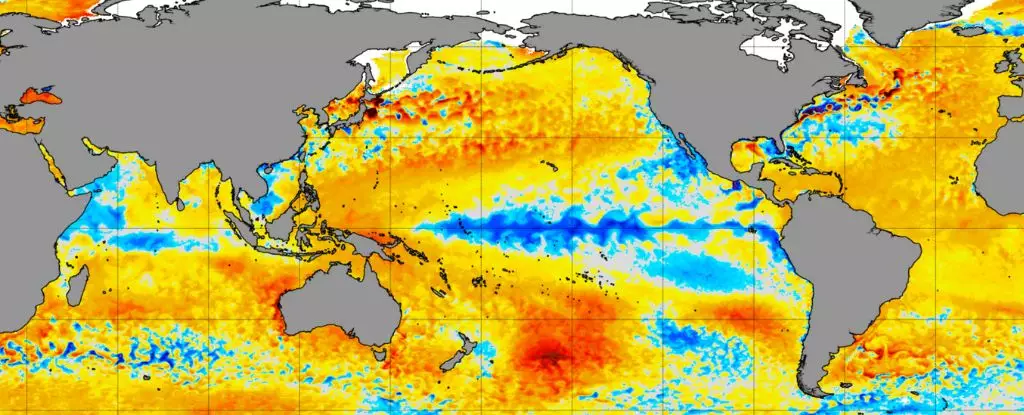Since the onset of 2023, the world has witnessed an alarming surge in global temperatures that has triggered an array of environmental disasters. The ongoing wildfires in Los Angeles and the catastrophic floods in Valencia are just two examples of how climate change consequences are becoming more severe and frequent. This situation has left researchers racing to find answers about the accelerating rates of temperature increase contributing to these disasters. Recent data indicates that the worrisome trend of rising sea surface temperatures is a key component igniting this crisis.
A Debilitating Temperature Surge
Research from the University of Reading highlights that ocean temperatures are on a steep incline, with rates now over four times greater than those observed during the late 1980s. This alarming acceleration paints a dire picture for our oceans, particularly in the northern half of the Atlantic, where December saw unprecedented sea surface temperatures. This sudden warming trend raises questions about the underlying mechanisms that may be responsible for this dramatic shift.
Theories About the Causes
Several hypotheses have emerged to explain the roots of this extraordinary heat wave. While the recurring El Niño phenomenon is acknowledged as a contributing factor, researchers have put forth additional theories. One possibility stems from the 2022 eruption of Hunga Tonga-Hunga Ha’apai, which may have propelled heat-trapping water vapor into the atmosphere. Additionally, alterations in aerosol emissions, which have been influenced by shipping regulation changes since 2020, could be playing a role in diminishing the Earth’s natural cooling processes. Compounding the situation, peak solar activity is believed to further intensify the situation, making it even harder to counterbalance these factors. However, current models still do not fully encapsulate the temperature variances we are experiencing.
A Deep Dive into Data Analysis
To understand these rapid shifts better, meteorologists like Chris Merchant have utilized satellite records dating back to 1985. This analysis reveals that the baseline rate of sea surface warming has transitioned from a modest increase of 0.06°C per decade in the 1980s to a staggering 0.27°C today. This is not merely a linear trajectory; the warming is continuously picking up pace. Merchant illustrates this concept with a metaphor about a bathtub: where previously the hot tap was barely running, it is now permanently switched on, drastically increasing the temperature of the water.
With projections indicating that we could soon witness more sea surface temperature increases within the next 20 years than we have in the last four decades, the magnitude of the crisis deepens. The energy imbalance this creates poses significant risks, affecting ecosystems and human health alike. The implications of this imbalance are dire: wildlife populations are dwindling, food security is diminishing due to the devastation of crops, and serious health issues are becoming increasingly prevalent.
Call to Action for Policymakers
Amidst this disheartening situation, researchers urge policymakers and society as a whole to reconsider how we gauge climate issues. The rate of global warming from prior decades is no longer an accurate reflection of the accelerated changes that lie ahead. In light of this urgency, drastic cuts to fossil fuel consumption must be prioritized to mitigate worsening conditions.
Despite having comprehensive strategies available for addressing climate change, the fossil fuel industry continues to undermine efforts to protect our planet. The actions we take today can shape the future. Each step toward minimal fossil fuel emissions can ultimately save lives, stave off environmental damage, and preserve the planet for future generations. It is vital to recognize the precarious nature of our situation and the profound need for immediate, collective action to reverse these devastating trends before they spiral beyond our control.
As the human race confronts the consequences of our past inaction, it’s critical to stay vigilant and committed to forging a sustainable future for our planet.


Leave a Reply